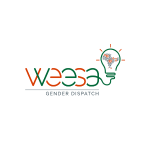

Women’s Economic Empowerment in South Asia (Hosted by SAR GIL)
Tags
- Women’s Groups (20)
- Gender-based Violence (17)
- Implementation Completion Report (ICR) (15)
- Measurement (10)
- Leadership (18)
- Afghanistan (13)
- Social Norms (8)
- Infographics (9)
- Transportation (10)
- Green Transition (6)
- Toolkits (10)
- Pakistan (17)
- Energy (10)
- Jobs (43)
- Self-help Groups (12)
- Infrastructure (7)
- Agriculture (12)
- Social Protection (12)
- Digital Inclusion (16)
- Nepal (7)
- Private Sector (14)
- Care Economy (10)
- Agency and Self-efficacy (4)
- Bhutan (2)
- Sri Lanka (5)
- Podcast (17)
- Operational Documents (20)
- India (23)
- Assets and Resources (14)
- Bangladesh (19)
- Maldives (1)
- Climate Change (18)
- Entrepreneurship (19)
- Financial Inclusion (10)
- Policies and Legislation (14)
- Male Engagement (7)
- Gender Budgeting (7)
- Implementation Completion Report Review (ICRR) (5)
- Education and Skills (22)
Documents
Stories from the Field Episode 1: Women’s Groups in South Asia – a Magic Bullet or a Missing Piece of the Puzzle?
Our first two guest speakers Thomas de Hoop and Sapna Desai present their recent work to create a typology of women’s groups in South Asia. In addition, they shed light on the history of women’s groups
In India, Women’s Self-Help Groups combat the COVID-19 (Coronavirus) pandemic (2020)
Women Self Help Groups in India have risen to the extraordinary challenge of COVID-19 (Coronavirus) pandemic. They are meeting shortfalls in masks, sanitizers and protective equipment, running community kitchens, fighting
Afghanistan's Women Self-Help Groups on the COVID-19 Front Lines (2021)
In Afghanistan, the Women Economic Empowerment Rural Development Project (WEE-RDP) is a national program that empowers rural Afghan women to mobilize into self-help groups. These groups help their members access
Impact of COVID-19 on rural SHG women in Odisha (2020)
This report presents findings from a study that was conducted to assess the impact of COVID-19 on SHG women in Odisha. The objectives of the study were to (i) study the
Do SHG programs mitigate a household’s vulnerability to extreme weather events? (2018)
This paper addresses the question through a natural experiment arising from two independent but overlapping sources of variation: exposure to a devasting cyclone that occurred in the Bay of Bengal
Unheard voices: the challenge of inducing women’s economic speech (2017)
Policymakers have tried to induce women’s participation by leveraging the group-based format of self-help groups, which can build women’s social capital and develop their sense of political efficacy and identity.
Economies of scale of large-scale international development interventions: Evidence from self-help groups in India (2018)
This paper presents evidence on the association between program scale, costs, and cost-effectiveness by analyzing how the costs of a large-scale Self-Help Group program in India changed from its inception in
A case study of JEEViKA (2022)
Using primary survey data, this paper compares changes in different socio-economic factors of SHG women and non-SHG women. It assesses three main dimensions, i.e., loan size, savings pattern, and women
Group-based livelihood interventions in low-medium income countries (2019)
This map provides evidence on the impact of group-based livelihoods programs on household and individual economic, social, and empowerment outcomes. It includes over 130 impact evaluations and systematic reviews authored
Systematic Review: What do We Know About Interventions to Increase Women’s Economic Participation and Empowerment in South Asia: Self-help Group Programs (2022)
The South Asia Gender Innovation Lab has published a review of studies that evaluate self-help group (SHG) programs as a mechanism for achieving changes in women’s economic outcomes. This review is part